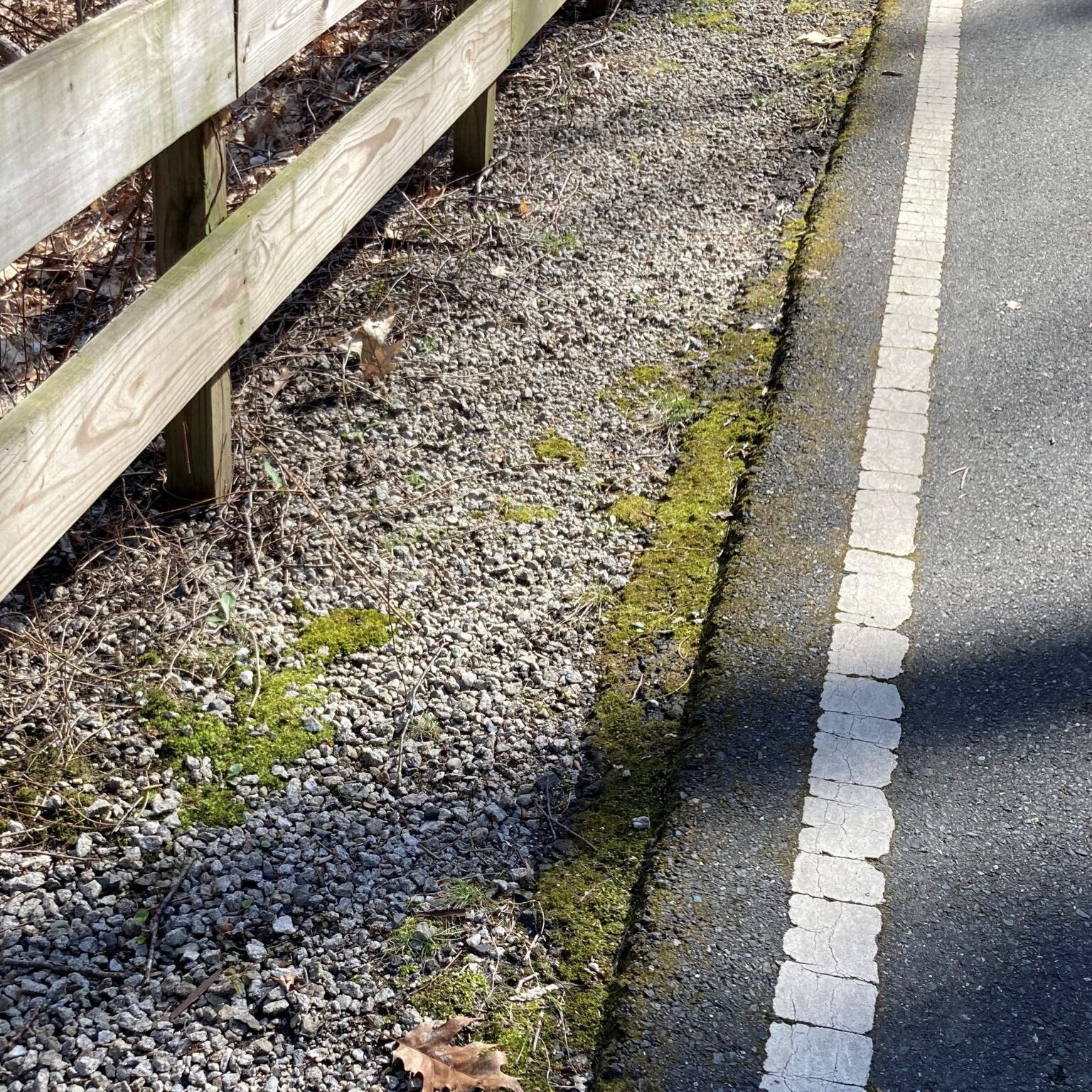Language is the blood of the soul into which thoughts run and out of which they grow.
-Oliver Wendell Holmes
The temperature two days ago was in the 70s. I worked up a sweat in shirtsleeves and I had to carry water in a backpack for Waldo. Today, it’s in the high forties, but windy. With windchill, the temps are in the low forties. All the ice and snow are gone and in their place is grass that has significantly greened and started to grow. Green moss is growing on tree trunks and along the trail in shady wet places not so hospitable to grass. Even the white pines, that stay green year-round, seem to have a darker hue. If I had a green meter, I’m sure it would show a general increase in intensity of that color. The buds on the tips of tree limbs are still small, but some of the weeds are on the verge of bursting forth. Spring may not be here yet, but she’s a’stirring.
Waldo is out at the end of the leash, looking for sticks and sniffing around for whatever is out there and it all entertains. His tail is wagging and he has a jaunty step, eager to meet nature on her terms. I‘m listening to an app on my phone in an effort to learn French. I plan on going to Switzerland (French is one of four official languages in Switzerland and spoken widely where I’m going) for a week or so in June and I want to be able to communicate a little. Learning a foreign language takes consistent work and lots and lots of time. I know that when I do get to the Swiss Alps, I will be far from fluent, but maybe I can communicate a little.
I find the intellectual exercise of trying to speak in a language that I don’t know well challenging and interesting. Stumbling around, trying to find the right words, or close enough so that the person I’m talking to can figure out what I’m trying to say, is fun. Most people appreciate my efforts to try to talk to them in their native tongue and are probably a little amused at my errors. They’re patient and willing to repeat themselves and slow the pace of their speech. Teaching is fun too, you know. The interaction usually ends in smiles all around.
I’m also bemused by what I see as the poetry of how things are said in another language. In Italian, they say, “Non è mai succeso,” for “it hasn’t happened.” The literal translation is “Not is never success.” The double negatives amuse me. In English, we say, “I am angry.” In many other languages, like French, the literal translation of how that is said is, “I have anger.” When I think about it, this suggests something rather profound. For human beings, language sets the experience of life. We see life through a filter colored by language. We interpret what we confront through the lens of language. So, when I say, “I am angry,” I am, to some degree, identifying with that anger. I am that anger. Even in the languages that express that with, “I have anger,” the psychological implication is that anger is not something that is you, but you carry it. This is no more real than identifying with the anger because the outside world did not give it to you, you reacted to something that happened with anger.
I don’t believe that I’m splitting hairs here. Our languages reflect a confused worldview that we generate as we develop as children, one that is supported and reinforced by our friends and family. In this worldview, somehow, the external world is doing things to us and giving us bad, or good, that we have to deal with. But the reality is the world is just what it is. It doesn’t “give” us anything or “do” anything to us. It just does what it does in accordance with emotionless natural law. It does its thing and sometimes we get in the way. When that happens, we react emotionally because our ancestors developed the ability for emotional responses, that, in turn, helped them survive and produce more humans. We have little control over all that.
However, it’s what we do with all that input (the direct action of the world on us and our emotional reactions afterward) that we humans have control of. We are not the anger and, although we feel anger, we don’t have anger – at least not in the sense that it’s some thing that we possess. Anger is just something that happens to us, just like everything else that happens to us. I stub my toe. I feel pain. I feel anger. They’re both just something that happened to me. I am not the pain, I am not the anger, I don’t own the anger. I get to choose, if I can maintain the right mindset, what I’m going to do, if anything, about the pain in my toe and the anger I feel. I don’t need to act on instinct, I can choose to act intelligently. The pain may linger a bit, but I can put my toe on ice and I can let the anger go, for example.
I look at Waldo. His baseline emotional state is one of happiness, especially out here on the rail-trail. If something surprises him, or angers him, he reacts instinctively, but, within a few seconds, he’s back to doing his Waldo thing – tail wagging, springy step and nose to the ground. Why? Part of that is his personality, but I also believe that it’s also because life is more fun that way. And what dog doesn’t want to have fun?
I finish my French lesson and watch Waldo interact with the world for the rest of the walk. He’s teaching me dog language.
And that’s kinda fun.



